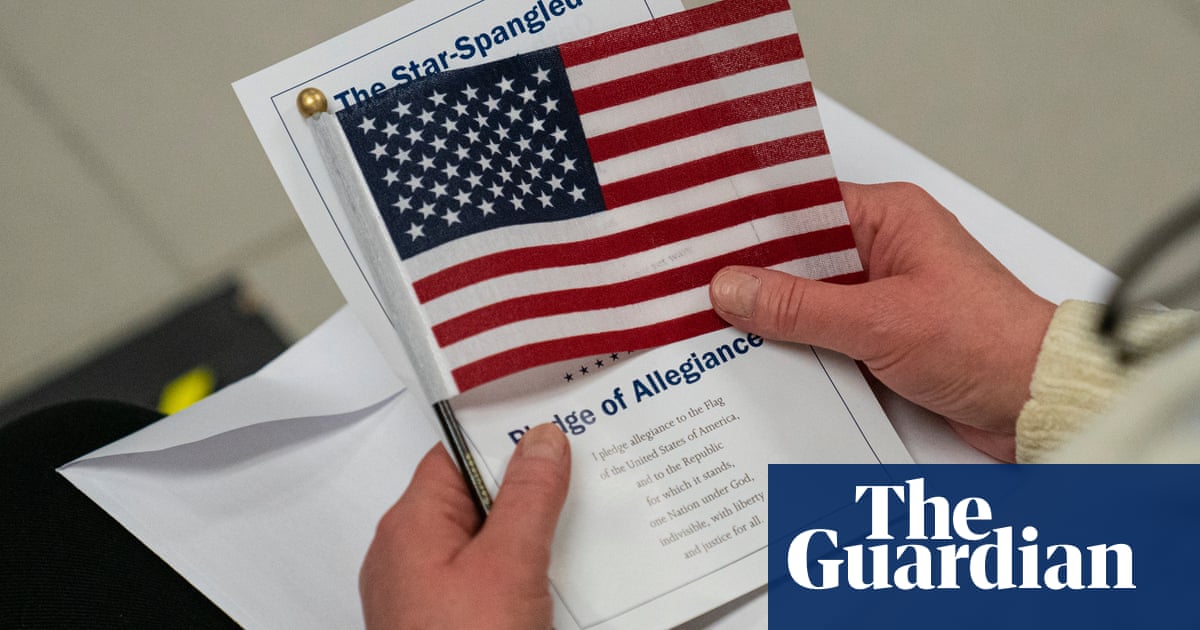The Trump Administration’s Memo on Denaturalization: An Overview
The recent memorandum issued by the Trump administration has sent ripples through the American legal landscape, particularly regarding the citizenship rights of naturalized Americans. Emphasizing a stricter stance on denaturalization, the memo instructs Justice Department attorneys to prioritize cases aimed at revoking citizenship for individuals convicted of certain crimes.
The Core Directive
Published on June 11, the memo outlines a clear directive: attorneys are encouraged to initiate civil proceedings against naturalized citizens who either "illegally procured" their citizenship or did so through “concealment of a material fact or by willful misrepresentation.” This emphasis on denaturalization is particularly pressing given that approximately 25 million U.S. citizens were born abroad and later naturalized.
The memo delineates ten priority categories where denaturalization efforts will focus, significantly broadening the scope for legal actions against naturalized individuals.
Implications of Civil Proceedings
One salient feature of the memo is the legal framework within which these denaturalization actions will occur. Unlike criminal proceedings, which guarantee defendants an attorney, individuals facing denaturalization in civil court do not have that right. This critical difference means that the burden of proof—traditionally higher in criminal cases—will be lighter for the government in civil cases. Critics argue that this effectively lowers the bar for the state to strip individuals of their citizenship.
Targeting Serious Criminality
The memo specifically mentions that denaturalization efforts will be concentrated on individuals involved in extreme criminal acts, including “war crimes, extrajudicial killings, and other serious human rights abuses.” This focus extends to those labeled as “naturalized criminals” or gang members, suggesting a broader agenda aimed at enhancing national security.
The Expanding Scope of Denaturalization
In addition to severe crimes, the directive allows attorneys more leeway regarding cases involving false statements on immigration forms, financial fraud, or medical fraud. This expansion raises questions about the potential for abuse, as it could potentially encompass a wide range of infractions, impacting more individuals than initially anticipated.
Overarching Policy Objectives
The memorandum fits within a larger pattern observed in the Trump administration’s policy initiatives, particularly under the aegis of the Department of Justice’s Civil Rights Division. With efforts aimed at dismantling diversity, equity, and inclusion programs and broader immigration policies, the focus appears to be shifting dramatically.
Concerns from Legal Experts
The announcement has raised alarms among immigration attorneys and civil rights advocates. They emphasize that the civil litigation model used for denaturalization proceedings strips away essential rights traditionally afforded to defendants. Sameera Hafiz, policy director for the Immigration Legal Resource Center, articulated concerns by suggesting that the initiative creates a “second class of US citizens,” undermining the foundational principles of due process.
Recent Developments
Since the issuance of the memo, there have already been tangible outcomes. For instance, on June 13, a U.S. judge revoked the citizenship of Elliott Duke, a military veteran from the UK, after it surfaced that he had failed to disclose a conviction for distributing child sexual abuse material during his naturalization process. This case illustrates the serious ramifications this memo can have on individuals who might find themselves in precarious legal situations.
The Current State of the Civil Rights Division
Adding another layer of complexity, the Civil Rights Division of the Justice Department appears to be undergoing tumultuous changes. It has faced significant staffing challenges, with reports indicating that about 250 attorneys—roughly 70% of the division—left between January and May of 2024. Those familiar with the Department’s history note that this shift diverges sharply from its original mission focused on combating racial discrimination.
Broader Policy Context
Meanwhile, ongoing actions by other governmental bodies, such as a lawsuit filed against 15 district attorneys in Maryland over the deportation of migrants, further spotlight the sometimes contentious relationship between state and federal immigration policies. The rapid changes occurring within the scope of immigration law and civil rights are not only reshaping the legal landscape but also eliciting strong responses from various stakeholder groups.
In sum, the Trump administration’s memo on denaturalization marks a significant pivot in the approach to citizenship and immigration law, with far-reaching implications for individuals and communities across the nation.


